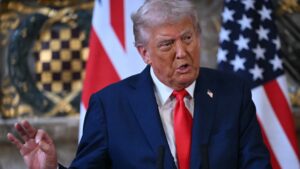There’ve been lots of reports floating around whether the Indian Government will allow cryptocurrency or ban it. While the reality and broad consensus is banning won’t prevent users from dealing in the same but will become more difficult if users get defrauded.
Punit Shukla, Project Lead – Blockchain and AI at World Economic Forum believes, “The blockchain technology is very foundational in nature and majority of mindspace in last 4-5 years has been around in the use case of blockchain technology which has been primarily in the space of cryptocurrency and it’s great to see the level of innovation this space is undergoing is exciting to see. However we shouldn’t forget at the core the blockchain technology disrupts and brings a new perspective of trust between intermediaries that is somehow the crux of the technology.”
On the future of cryptocurrency, he adds, “That question is to be solved by a multi-stakeholder approach and can’t be just one sector. Government and Civic societies have to be brought on board to decide the future of cryptocurrency and how it will look like and what kind of policy levers and technology standards encourage the adoption of cryptocurrency and blockchain technology. A multi-stakeholder approach is required.”
Danish, Advocate and Co-founder at CryptoKanoon, sheds light on the ground reality stating the situation is painful and ugly as the industry is in a regulatory vacuum. He adds, “Difficulties are being faced by consumers and businesses in the ecosystem due to uncertainties around regulations. Immense growth has been seen during the Covid-19 period and law enforcement agencies are not equipped to deal in these cases and question the legalities of the transaction when a consumer tries to report he’s been defrauded.”
On why regulators are holding back, Navin Surya, Chairman at FinTech Convergence Council says there are certain nuances around understanding currencies apart from medium of exchange and store of value. Bitcoin became an internet currency across the globe at the same time some innovations happened in the space which were not similar to Bitcoin should’ve been called crypto assets or securities which created a vicious environment. At the same time financial literacy and awareness is also important as nobody wants an uncertain environment.
He adds, “The government shouldn’t ban private cryptocurrency and other side empower regulators to issue one, it’s an oxymoron, and it shows the policy fundamentals are not thought through and the government and regulator are not clear about it and still trying to grapple with what to do. The challenge is the confusion between the currency and asset where the whole fuss is about. However Indian regulator and government are keen to issue digital currencies and it shall happen soon.”
Sumit Gupta, Co-founder and CEO of CoinDCX explains that there’s a gap in the financial literacy and the lack of redressal mechanism and that can be addressed through regulatory clarifications. He explains, the youth in India are investing and are keen to explore investing in cryptocurrency especially since the lockdown was imposed.
Jaideep Reddy, Technology Lawyer at Nishith Desai Associates says, “Blockchain is a fundamentally disruptive technology and a universal ledger; if properly regulated, crypto-assets can saves a lot of time and transaction costs, which currently are as high as 4-5% for cross-border remittances.”
On how it can the regulatory environment can be addressed, Reddy adds, “The Government can do is to bring the crypto exchanges and other providers under the PMLA act under the reporting entities in which case they will be treated same as banks, stock exchanges, intermediaries etc. as they will follow all KYC measures and for this an amendment is not required and it can be done by a government notification which is the lowest hanging fruit.”










